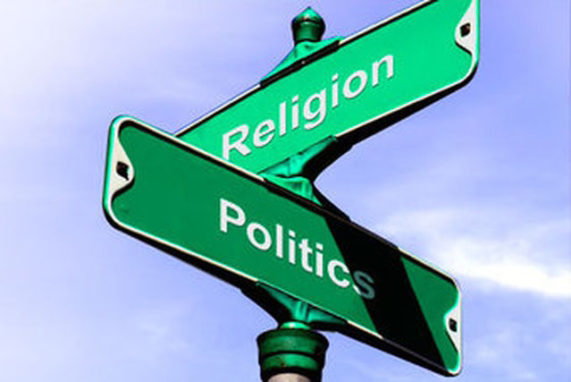SECULARISM AND THE ROLE OF RELIGION IN POLITICS
The relationship between religion and politics has been greatly influenced by
secularism
as a concept. It embodies the idea of a barrier dividing the operations of the
state and the activities of religious organisations.
Egality, religious freedom, and the
absence of partiality from one religion over another are among the key values
of secularism. Secularism can, however,
take diverse forms in various circumstances and countries, with varying
effects on the place of religion in politics. The various aspects of
secularism are examined in this write up, as well as how it interacts with
religion in a variety of interesting ways on the political front.
Secularism is defined as the foundation
that supports a state's impartiality in questions of religion. It places a
strong emphasis on keeping religious organisations and governmental entities
separate in order to avoid any one religion taking over society or forcing
its beliefs on its varied population. While secularism seeks to safeguard
everyone's right to exercise their conscience and their belief in whatever
manner they choose, it does not strive to banish religion from the public
place. Instead, it encourages a setting where religious and nonreligious
beliefs can live peacefully.
The distinction between church and state is an essential aspect of
secularism. This rule assures that religious institutions do not directly
influence politics and that governments do not meddle in matters of faith.
By prohibiting the creation of a state religion, religious compulsion, or
discrimination based on religious convictions, the separation seeks to
protect individual freedoms. Countries like
France have rigorous secular regulations
in place, requiring state institutions to uphold religious neutrality and
limits the use of religious symbols or the emotions in public areas.
Religious Freedom and Secularism: Contrary to popular belief,
secularism does not equate to hatred towards religion. Instead, it offers a
framework that safeguards people's freedom to practise their religion.
Secularism encourages an equal playing field for all religious and
non-religious groups by separating politics from religion. It makes sure
that no religion receives preferential treatment or improper influence over
governmental decisions. By avoiding the power of one religion over another,
secularism serves as a guarantee of religious freedom.
Problems and Discussions: There are continual problems and
discussions around the application of secularism and its function in
politics. Some contend that strong secularism may result in the
discrimination of deeply held religious views by eliminating religious
voices from open discussion. Others claim that allowing religious
practises in public life can lead to a society that is more equal and
inclusive. As nations struggle with issues like the wearing of religious
symbols, faith-based policy-making, and
the rights of minority religious groups, striking a balance between
religious freedom and upholding a neutral public sphere remains a
difficult task.
Global Perspectives: Different countries and regions apply
secularism in different ways, reflecting various cultural, historical, and
political settings. For instance, the secularism practised in the
United States preserves the principle
of the separation of church and state while allowing for religious
diversity and the practise of religion in public life. In contrast,
stricter secularism has been adopted in nations like
Turkey, where state institutions
strongly regulate religious practises to preserve a secular public realm.
Understanding these global viewpoints offers insights into the various
methods for controlling the relationship between religion and politics.
Future Trends: The idea of secularism is still changing as
societies advance and face new difficulties. The future course of
secularism is questionable in light of the development of religious
nationalism, the effects of advancement, and the changing character of
religious belief. In order to shape the role of religion in government
within a secular framework, it will be important to find ways to deal with
religious diversity, encourage interfaith discussion, and promise the
protection of individual freedoms.
In conclusion a fair and inclusive political climate where people can
freely practise their religion, non-religious beliefs is promoted
by sticking to the principles of secularism. Secularism upholds the
ideas of religious freedom, equality, and the impartiality of the state
by keeping religious institutions and state activities separate.
Secularism's application, however, is complicated and can differ
depending on the situation. Societies always struggle to strike a
balance between allowing for religious freedom, preserving public
neutrality, and allowing for a variety of beliefs. In order to promote
inclusive and democratic societies in the modern world, it is essential
to understand the complex nature of secularism and its relationship with
religion in politics.


Comments
Post a Comment